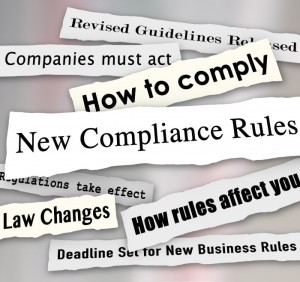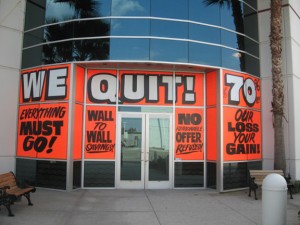In Philadelphia you have to get a $300 business license to write a blog. One poor woman complained that her blog wasn’t much of a business, as she had earned only $11 from it last year, but the City fined her anyway. (My blog, like millions of others, is for information and perhaps entertainment, but earns nothing at all).
 Louisiana ruled that caskets can only be sold by licensed funeral directors, not by a group of monks who raise money selling hand-made woodcrafts, including caskets. The State expects them to convert the monastery to a fully licensed funeral home to continue – never mind that they hold no funerals.
Louisiana ruled that caskets can only be sold by licensed funeral directors, not by a group of monks who raise money selling hand-made woodcrafts, including caskets. The State expects them to convert the monastery to a fully licensed funeral home to continue – never mind that they hold no funerals.
Lake Elmo, Minnesota can fine farmers $1000 for selling Christmas trees or pumpkins grown outside the city. In Los Angeles you can only open a used book store if you register with the police and get fingerprinted, like gun shop owners.
I used to give frequent tours of the U.S. Capitol. I’ve always enjoyed sharing my passion for the nation’s rich history, and showing out-of-the-way corners not usually on the public tours. But today I could go to jail for 90 days if I gave such a tour without a license, or showed friends any part of the building not authorized by some official. Like so many other frustrated citizens, I just don’t do it anymore.
Many small businesses say they just can’t continue to operate under this regulatory cloud. But in Milwaukee, you can’t even go out of business without a license. It requires lots of paperwork, reporting the inventory you need to sell off, a fee based on the length of your “going out of business sale,” and a $2 charge for every $1,000 worth of inventory you get rid of.

In the 1950s about 1 in 20 people needed some government approval to do their jobs. Today it is more like 1 in 3. Though most regulation is actually at the local level, people are especially sensitive about federal over-reach. At the height of the New Deal in 1936, the Federal Register began to publish every day all federal regulations and notices of new regulatory procedures. That first year it ran to 2,620 pages and many people were outraged. In 2014 the Federal Register topped 80,000 pages, and has averaged 50-100 pages daily for more than 20 years.
Lots of people think we ought to just stop all this regulation, so much of which serves no legitimate purpose. But that is just the problem – rules do serve a purpose. Virtually all such rules were created with the best of intentions, especially to prevent some threat to public health or safety. When bad things happen, Americans tend to demand rules to make sure it never happens again. That’s why it is so difficult to eliminate particular rules. And it’s why governments now tell us how cooked our hamburgers have to be, whether the windows in our homes are installed correctly, and in thousands of other ways try to keep us from hurting anyone, including ourselves.
The French writer Alexis du Tocqueville predicted that America might suffer this fate 180 years ago. Writing about the power of such regulations over free citizens, he explained that “The supreme power… covers the surface of society with a network of small complicated rules, minute and uniform, through which the most original minds and the most energetic characters cannot penetrate, to rise above the crowd. The will of man is not shattered, but softened, bent, and guided… Such a power does not tyrannize, but it compresses, enervates, extinguishes, and stupefies a people, till each nation is reduced to nothing better than a flock of timid and industrious animals, of which the government is the shepherd.”
More recently, Nobel Prize winning economist Professor Edmund Phelps, wrote similarly about how over-regulation is holding America back. “No one is free to make choices, including, especially, government officials. Regulatory law has become a nearly impenetrable web of detailed prohibitions and specifications. Everyone is hamstrung. Dense regulation discourages individuals, communities, and companies from taking new initiatives… This is an important reason why it is so expensive to start a business, why healthcare costs have gone through the roof, and why innovation has slowed to a crawl.”
All rules serve a purpose, and civilized societies need some rules. But somewhere along the way, we need to rediscover the common sense we were born with, and apply it to the way we govern ourselves.
(A version of this column appeared in the Grand Junction Daily Sentinel October 9, 2015)




Comments on this entry are closed.